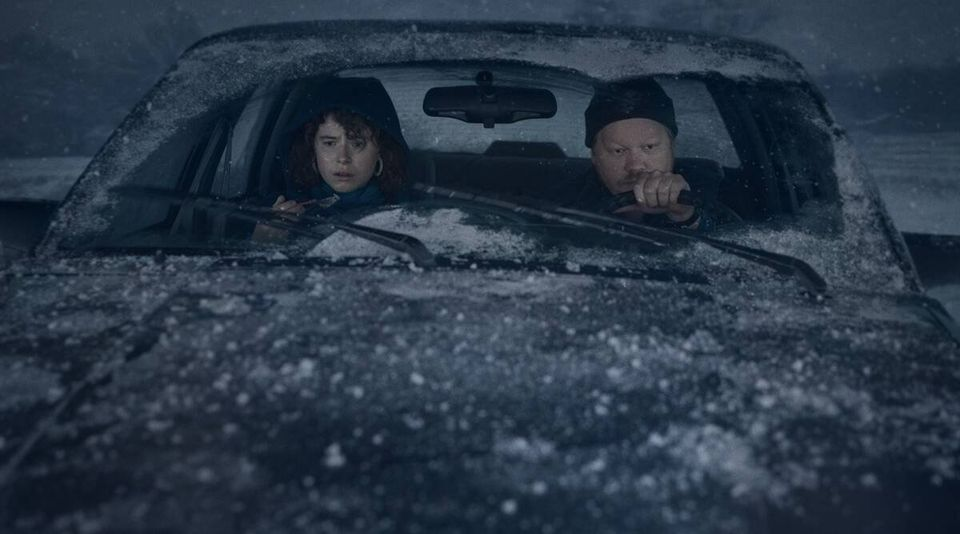Alternative monitoring of popular culture ~ broadly defined ~ in the pursuit of deeper understanding
Monday, June 27, 2022
Rosemary's Baby (1968)
Saturday, June 25, 2022
A Strange Loop
Broadway is a bit out of reach for me, right now, so exploring the wonder that is the Tony Award-winning musical A Strange Loop has been limited to Spotify.
Zardoz
In the opening scene of writer / director John Boorman's Zardoz (1974) -- after a kooky prologue by a mysterious narrator of sorts -- a floating stone head with fierce shining eyes and gaping mouth descends on a group of masked horsemen, spews out rifles and handguns and orders the riders to kill the lesser brutes in the countryside.
Elvis
Tuesday, June 14, 2022
The Guilty / Ambulance

Crimes of the Future
David Cronenberg’s second pass at his own story titled Crimes of the Future opens with a filicide and then gets pretty disturbing — but not as icky as several of the uncompromising director’s earlier films — The Fly (1986), Naked Lunch (1991) and eXistenZ (1999), for example. This might be more a factor of the rest of moviedom pulling out the stops on viscera more frequently than with any change in Cronenberg’s particular vision. He’s still the master of revulsion in this story of a future time when humans develop immunity to pain and substitute scalpel-play for sex.
I'm Thinking of Ending Things
Friday, June 10, 2022
Fantastic Beasts: The Secrets of Dumbledore
David Yates could direct a Harry Potter Wizarding World film in his sleep, and part of me feels Fantastic Beasts: The Secrets of Dumbledore came together during periods of slumber.
The Northman
Heartstopper
Wednesday, June 8, 2022
Charlotte Rampling
I really like Charlotte Rampling.
Top Gun: Maverick
The Bob's Burgers Movie
Friday, June 3, 2022
Watcher (2022)
Chloe Okuno's creepy Watcher (2022) puts Bucharest's grimy streets and dingy hallways to excellent use as the backdrop for its unsettling tale of a young American wife (Maika Monroe), who relocates to the Romanian capital after her Romanian-American husband (Karl Glusman) is transferred there by his company. She soon discovers a neighbor (Burn Gorman) has taken a special interest in her from his window across the courtyard.
Crime 101
Bart Layton's Crime 101 invites the audience into a world of corruption that is not so different from the real world, where even decent ...
.jpg)
-
As you closely read the two photographs above -- Sally Mann's "Candy Cigarette"(top) and Diane Arbus's ...
-
The release of a new Paul Thomas Anderson (PTA) feature film is an event for cinephiles because the decidedly quirky and celebrated auteur...
-
In traditional Hollywood terms, director Joseph Kosinki's $200 million racing baby, F1: The Movie , is a sure winner. With the epic ci...

















